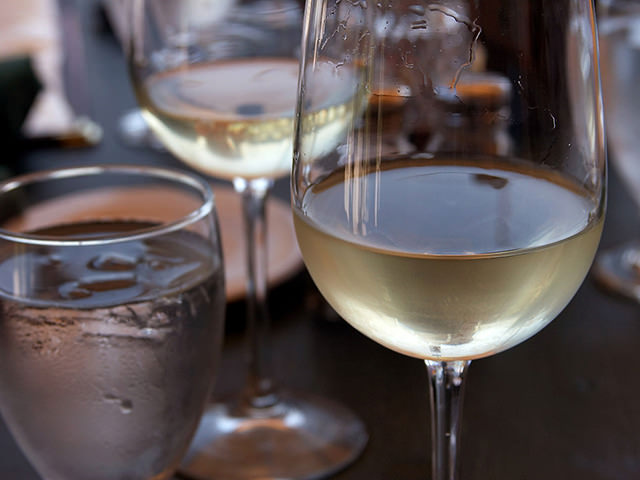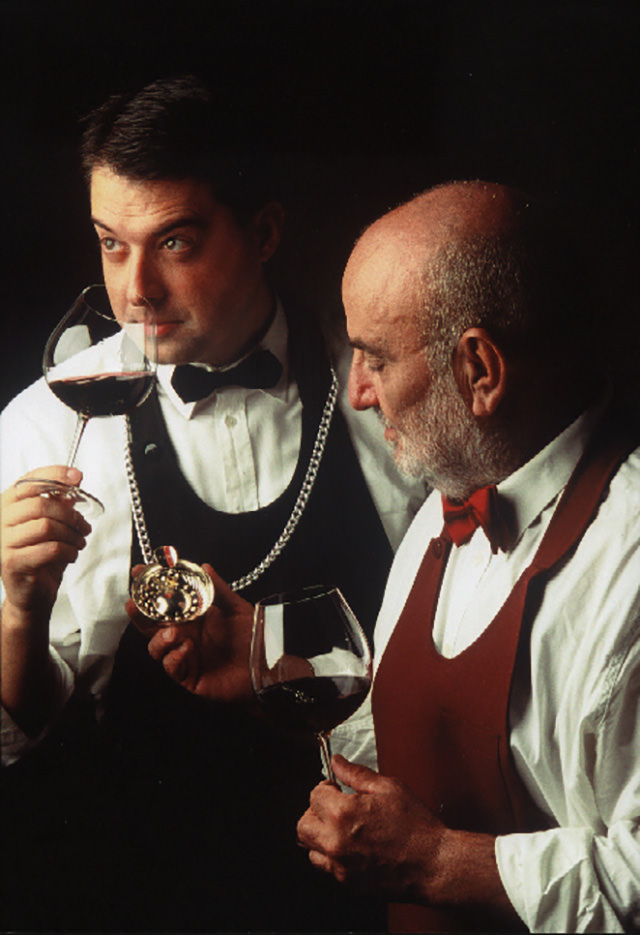A growing number of people want to learn about wine as the popularity of this beverage of moderate-alcohol content combined with wine’s fascinating history (wine is the only alcohol beverage used in religious services) attracts the curious.
“What is it with this?” may be the first question that pops into a consumer’s mind after tasting this beverage that they actually like.
 My own introduction to wine was somewhat unique unless one’s family is actually in the wine trade. My story unfolded like this.
My own introduction to wine was somewhat unique unless one’s family is actually in the wine trade. My story unfolded like this.
I was attending a family get-together after I had reached the legal age of drinking in New York State that year. One of my favorite aunts, who did not drink at all due to her religious beliefs, asked me, “Do you know what your name means?”
I replied, “No.”
She said, “Grower or seller of black grapes,” and then pivoted 180 degrees, walked out of the room, leaving me to ponder this 500 year-old piece of information.
I thought, “Grapes make wine, huh? I guess I’ll have to try some.” That began my lifelong adventure with wine that has included: winery public relations, working at a small Sonoma county winery in California, selling wine in the US states of Maine and Hawaii and of course, wine writing.
Learning about wine is challenging but the “lab work” of tasting wine is a daunting task and requires considerable expense and determination to expand one’s taste buds and taste memory.
For example, it took me three years of attending yearly Masters of Wine seminars to sit the final week-long exam in Sydney, which I failed. But the consolation was I acquired a great deal of information during that process.
The MW program is not the only way to learn about wine and of there is a Master Sommelier program for those in the culinary/restaurant field. In most urban centers, there are wine courses but in Bangkok these do not seem to me to be widely promoted and tasting events where a large number of different wines are available are often a once-in-a- year event.
As the Master of Wine certification is the most prestigiously earned wine title in the world, let’s see what it takes to obtain the MW after one’s name:
- Applicants must have a wine qualification such as the WSET Diploma, a British study course, a bachelor’s or master’s degree in the wine field or a sommelier diploma and three years of professional work experience in the wine field. The Institute may make exceptions to the above if a candidate has an exceptional wine background.
- During the application process, the applicant must complete both practical and theory assignments.
- Residential seminars are conducted in the United States, Australasia and Europe. There are first and second year seminars that last five days each.
- The examination is a week-long event of written essays and three tastings.
- The final stage of the MW Study Programme is dedicated to the research paper. Only candidates who have passed the Theory and Practical parts of the examination can begin their research paper. The fee for the research paper is Great Britain Pounds 1,000.
- The fees, excluding the last research paper fee, amount to US$12,145, and the prospective MW must also pay travel and lodging expense to the site of the residential seminar.
- All of the work for the MW title must be completed within a six-year timeframe.
The difficulty I had in passing the exam was time to study while working a large number of hours to support myself and family. The best thing was that I did learn some things that I still carry with me as I write about wine.
[Article by David Swartzentruber]



 0
0